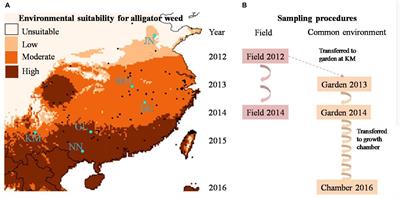EDITORIAL
Published on 15 May 2019
Editorial: Ecoepigenetics in Clonal and Inbreeding Plants: Transgenerational Adaptation and Environmental Variation
doi 10.3389/fpls.2019.00622
- 1,933 views
- 10 citations
13k
Total downloads
67k
Total views and downloads
EDITORIAL
Published on 15 May 2019
ORIGINAL RESEARCH
Published on 01 Mar 2019

MINI REVIEW
Published on 01 Mar 2019

ORIGINAL RESEARCH
Published on 11 Dec 2018

ORIGINAL RESEARCH
Published on 06 Dec 2018

ORIGINAL RESEARCH
Published on 20 Nov 2018

ORIGINAL RESEARCH
Published on 14 Nov 2018

ORIGINAL RESEARCH
Published on 13 Nov 2018

ORIGINAL RESEARCH
Published on 27 Aug 2018

